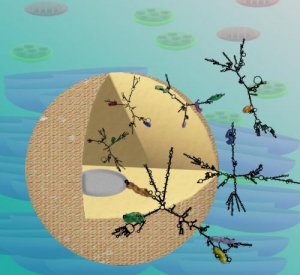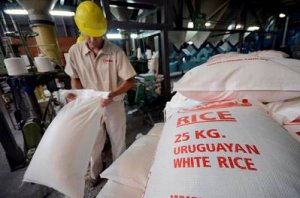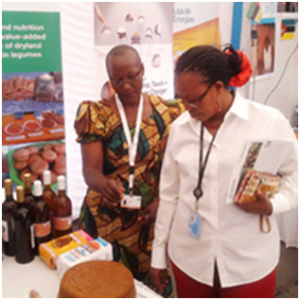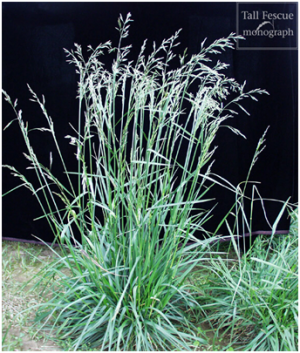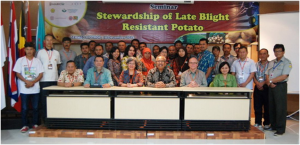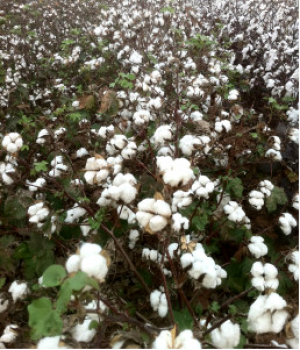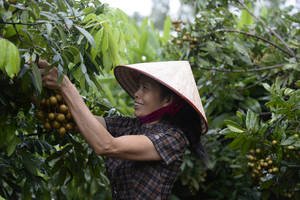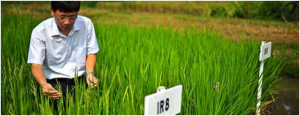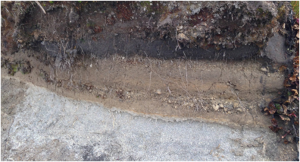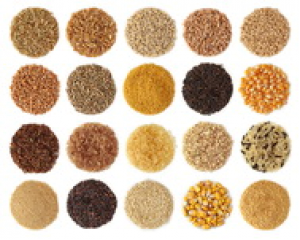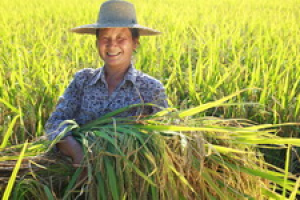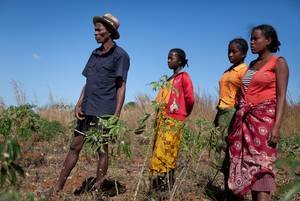|
Traditional Crop of the Month
Friday, 2015/01/09 | 08:53:02
|
|
FAO http://www.fao.org/traditional-crops/africangardenegg/en/ African garden eggplant Solanum aethiopicum (Ethiopian eggplant, scarlet eggplant) and Solanum macrocarpon (Gboma eggplant) Description
The scarlet (S. aethiopicum L.) and Gboma (S. macrocarpon L.) eggplants are two cultivated eggplants, which are popular traditional vegetables in tropical Africa. Both species are grown for their leaves and fruits. The fruits are consumed fresh as well as boiled, steamed, pickled, or in stews with other vegetables or meats, while young leaves are often used in soups and with other vegetables.
The fruits of S. aethiopicum are light to dark green, white or blackish in colour, turning red or reddish-orange, due to the high carotene content, as they ripen. The fruits’ shape is round to oval with smooth or grooved surface and the taste varies from sweet to bitter. The oval-fruit cultivars are particularly bitter.
S. macrocarpon can be differentiated from S. aethiopicum by its large hairless leaves and its longer calyx, which persists after formation of its fruits. The fruits are smooth, green or yellow in colour, and range from 3 to 12 cm in diameter. At full maturity, the fruits turn yellow, orange or brown.
Where it is found
Both S. aethiopicum and S. macrocarpon have been domesticated and are grown predominantly in Africa and are important especially in Central and West Africa. S. aethiopicum has also been introduced into the Caribbean and South America and is grown in some parts of southern Italy. S. macrocarpon originates in the tropical, humid zones of Central Africa and is, in general, less economically important than scarlet eggplant. In some places, however, such as Benin and tropical coastal Africa and Congo River, it is of significant importance. How to eat itGarden Eggplant Stew
450 g garden eggplant (cooked and mashed); ½ red onion (chopped); 1 cup cooked beans; ½ medium red bell pepper (chopped); ¼ cup of palm oil; ¼ cup canola oil; 2 stock cubes; red pepper flakes to taste.
Place frying pan over medium heat. Add both palm oil and canola oil and heat for about 2 minutes. Add onions and peppers and sauté for 2 minutes. Add mashed garden eggplants and cook for 2 minutes. Add beans, stock cubes and pepper flakes. Reduce heat to low and cook for 10 minutes taking care to mix often to prevent burning. Serve hot with rice or boiled yams, and vegetables. Serves 4.
|
|
|
|
[ Other News ]___________________________________________________
|


 Curently online :
Curently online :
 Total visitors :
Total visitors :
